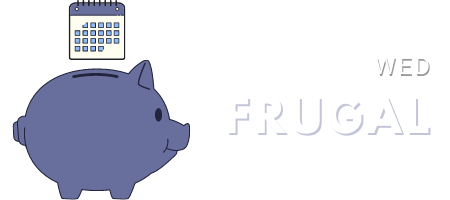
Finance Basics If You’re Just Getting Started
So, you’re finally ready to tackle the finances. You’ve worked hard all your life, and now you’re ready to hand over the reins. But where do you start? It’s easier than you think, and we’re here to help. By understanding how everything works, you’ll be able to make smart financial decisions for yourself and for your family.
People of all ages suffer from money stress. From student loans to unexpected expenses, it isn’t easy to know how best to budget and not feel financially pinched. Even when you’re just starting out in life, it’s not too late to start making wise financial decisions. Here, we’ll go over the basics that will help you get on the road to financial success.
What Is Financial Literacy?
Financial literacy is the ability of an individual to manage their finances intelligently. It starts by gaining an understanding of the concepts of money, credit, investments, and banking. It is a subset of financial literacy that specifically focuses on consumer finance. This is particularly important because, at some point in our lives, most of us will have to manage our own finances, whether deciding whether to apply for a credit card, buy a car, or save for retirement. It is the ability to make informed decisions about the best way to manage your finances.
The Importance of Financial Literacy
Financial literacy is not so often taught in school and is often glossed over as many high school students (and adults) struggle with basic money management basics. But financial literacy isn’t just about managing money: it’s about understanding what money means and how it influences our lives. As our population ages, the financial literacy gap will only widen, and we will all suffer because of it.
Financial literacy is the foundation for a stable and secure financial future. Without it, you may become uninformed about your personal finances, have difficulty managing your money, and struggle to make sound decisions. Worse, you may become financially dependent on others (e.g., your parents, government, or employers) or enter into financial relationships (e.g., student loans) that could compromise your ability to control your finances. It also enables you to make informed decisions about the financial decisions you make today, helping you avoid getting trapped in financial traps such as debt.
Short Tips For Financing Your Money
If you have a credit card, you know that it’s important not to carry balances on your credit card. And most issuers offer monthly rewards on credit card balances. But it can be hard to pay off your credit card balance if you lose track of the dates your statement is due.
Here are some tips to stay on track with your financing:
Create A Budget
When most people think of budgeting, they think of something complicated and time-consuming. They’ll talk about spreadsheets and software programs that make budgeting a breeze. But the truth is, budgeting can work for anyone, no matter how busy they are. It’s simply a tool that helps you manage your money.
Save Towards Your Home
When you’re setting out into the world as a young adult, housing is one of the main investments you will focus on. If you’re not able to afford a decent house, you might be better off living in a rented space so that you can save to build housing finance. Once you have saved enough for to buy a good property, you should learn about the best ways you can pay off your mortgage. Having your housing worries sorted out early enables you to focus on other areas of your life. In addition to that, when you reach the age of 55 and have a house fully paid for, you could obtain an Equity Release in Suffolk or a place closer to you. You could use this release to pay for your debts and retirement, depending on the value of your home. So, the earlier you begin saving to buy a house, the better.
Save For Retirement
It’s never too late to start saving for retirement. Whether you have a few years or a few decades left until retirement, it’s important to have a good plan. Starting early gives you time to save more money and increase your savings for future years. Many people make the mistake of not saving money for their golden years of life, which leaves them to be in a state of financial instability during their hours of need. Picture this: your children settle abroad and you are left alone at the age of 70. You are lonely and affected by arthritis. When faced with such a situation, wouldn’t your preferred choice be to shift to a senior living facility near you (like this one at carltonseniorliving.com/community/orangevale/)? Perhaps, yes! But if you are penniless, how would you afford the expenses?
Build An Emergency Fund
If you’re getting into personal finance, it’s intimidating. There are so many words and terms and so many pages to read. Finance basics for beginners can be overwhelming. What’s most important, though, is to get started. Building an emergency fund is a great first goal because it’s something you’re likely to do every month, no matter what. That said, it’s not the only step you should take.
You May Also Like

Top 3 Benefits of Using Credit Cards
April 30, 2021
Is Having More Than 5 Credit Cards Too Much?
July 9, 2022


